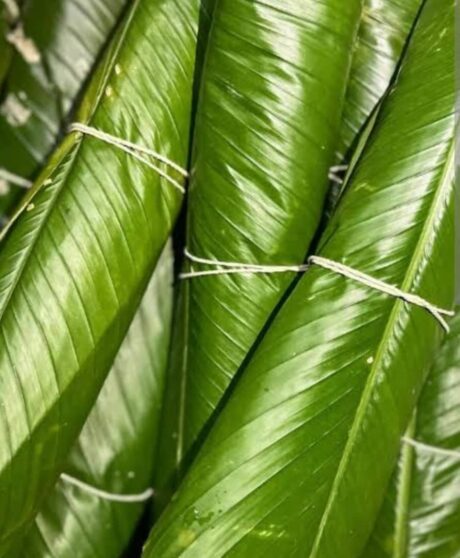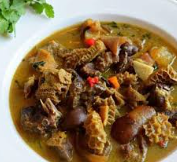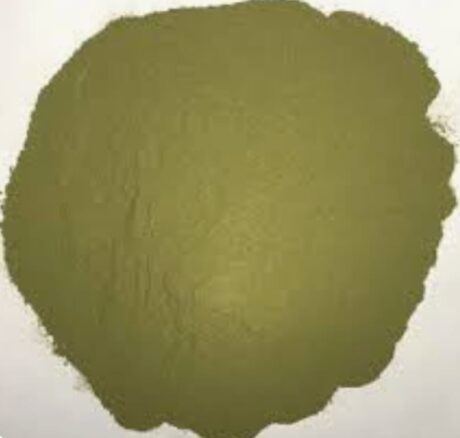Ewedu- per pack (Subscriber price only)
Description
Ewedu (Corchorus olitorius), also known as jute leaves, is a slimy, green leafy vegetable that is a staple in Yoruba cuisine. When cooked, it has a slippery texture, similar to okra, which makes it easy to swallow. The leaves are usually blended or whisked after boiling to achieve a smooth, viscous consistency. Ewedu is prized for its unique taste and texture, as well as its rich nutritional value.
Sources
Primarily cultivated in the southwestern states of Nigeria but also grown in other regions with warm, moist soil. It is commonly sold fresh in open markets and can also be home-grown in backyard gardens.
Health Benefits
-
Rich in vitamins A, C, and E, which promote good eyesight and healthy skin.
-
Supports digestion due to its mucilaginous (slimy) texture.
-
Boosts immunity and helps fight infections.
-
Promotes bone and teeth health with its high calcium content.
-
Aids postpartum recovery in women.
Common soups or dishes you can use it for
-
Ewedu soup (often served with amala and gbegiri)
-
Ewedu with stew and assorted meats
-
Mixed vegetable soups with okra
-
Ewedu with melon (egusi) combination soups
MoinMoin Leaves – per pack -(Subscriber price only)
Description
Moi Moi leaf comes from the plant Thaumatococcus daniellii, known for its broad, flexible, and aromatic leaves. These leaves are not eaten but are used as natural wrappers for steaming dishes like Moi Moi (bean pudding) and some local rice delicacies. Cooking with Moi Moi leaves gives food a distinct earthy aroma and flavor compared to using nylon or foil.
Sources
Oyo, Ogun, Ondo, and Ekiti, as well as parts of the South-South.
Health benefits (indirect — since the leaves are not consumed directly)
-
Adds a natural aroma to food without artificial flavoring.
-
Eco-friendly and biodegradable compared to synthetic wraps.
-
Helps retain food nutrients during steaming due to its natural sealing effect.
-
The plant itself has medicinal uses in traditional medicine (e.g., the fruits are used as natural sweeteners).
Common soups or dishes you can use it for
-
Moi Moi (bean pudding)
-
Ekuru (steamed mashed beans)
-
Some local steamed rice dishes
Uziza -per pack(Subscriber price only)
Description
Uziza (Piper guineense) is a fragrant, peppery leaf and seed plant native to West Africa. The leaves have a slightly bitter and spicy taste, while the seeds are pungent with a distinct aroma. In Nigerian cooking, the leaves are used fresh or dried to add depth and spice to soups and stews.
Sources
Primarily cultivated in Southeastern Nigeria, especially in states like Enugu, Abia, Imo, Anambra, and Ebonyi.
Health benefits
-
Aids digestion – helps relieve constipation and bloating.
-
Anti-inflammatory – soothes body pains and inflammation.
-
Boosts immunity – contains vitamins, minerals, and essential oils that fight infections.
-
Improves reproductive health – traditionally believed to boost fertility and sexual health.
-
Rich in dietary fiber – supports gut health.
Common soups you can use it for
-
Nsala Soup (White Soup)
-
Oha Soup
-
Pepper Soup
-
Egusi Soup (especially the Southeastern variation)
-
Okra Soup with mixed leaves
Ugwu- per pack (Subscriber price only)
Description
Ugu (Telfairia occidentalis), known as fluted pumpkin leaves, is one of Nigeria’s most popular and nutritious vegetables. The leaves are tender, slightly sweet, and have a rich green color, often used fresh in soups, stews, and sauces. The seeds of the plant are also edible and can be roasted or used in traditional meals.
Sources
Edo, Delta, Anambra, Imo, Enugu, and Cross River states.
Health benefits
-
Rich in iron – helps prevent and treat anemia.
-
High in vitamins A and C – supports vision, skin health, and boosts immunity.
-
Good source of calcium – strengthens bones and teeth.
-
Improves blood production – boosts hemoglobin levels.
-
Supports reproductive health – traditionally believed to enhance fertility.
Common soups you can use it for
-
Edikang Ikong Soup
-
Egusi Soup
-
Vegetable Soup (mixed leaves)
-
Ogbono Soup
-
Okra Soup
Scent leaves -Efirin – per pack (Subscriber price only)
Description
Scent leaf, scientifically known as Ocimum gratissimum, is a highly aromatic herb widely used in Nigerian cooking for its strong, pleasant fragrance and flavor. Known as Efinrin in Yoruba, Nchanwu in Igbo, and Daidoya in Hausa, it adds a unique taste to soups, stews, and sauces. Aside from its culinary role, scent leaf is also valued for its medicinal and health-boosting properties in traditional medicine.
Sources
Grown across Nigeria, particularly in home gardens and farms in the South-West, South-East, and Middle Belt regions. It thrives in both the rainy and dry seasons.
Health Benefits
-
Boosts immunity due to its rich content of vitamins and antioxidants.
-
Aids digestion and helps relieve bloating and stomach discomfort.
-
Antibacterial and antifungal properties help fight infections.
-
Helps regulate blood sugar when consumed regularly.
-
Relieves cough and cold when boiled and taken as herbal tea.
Common soups or dishes you can use it for
-
Pepper soup
-
Yam porridge
-
Ofada sauce (Ayamase)
-
Vegetable sauce for rice or yam
-
Ogbono soup (for added flavor)















